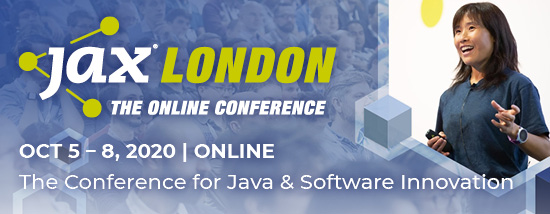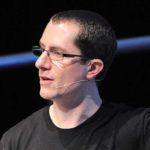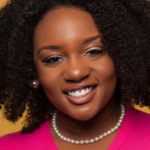A research study by The National Center for Women & Information Technology showed that “gender diversity has specific benefits in technology settings,” which could explain why tech companies have started to invest in initiatives that aim to boost the number of female applicants, recruit them in a more effective way, retain them for longer, and give them the opportunity to advance. But is it enough?
Four years ago, we launched a diversity series aimed at bringing the most inspirational and powerful women in the tech scene to your attention. Today, we’d like you to meet Shanea Leven, co-founder and CEO of CodeSee.
Today’s Woman in Tech: Shanea Leven, co-founder and CEO of CodeSee
 Shanea Leven is founder and CEO of CodeSee, a developer tool that helps developers and teams better onboard, review, and understand codebases. Prior to CodeSee, Shanea led teams that delivered high-quality products and features for leading companies including Google, Docker, eBay and Cloudflare.
Shanea Leven is founder and CEO of CodeSee, a developer tool that helps developers and teams better onboard, review, and understand codebases. Prior to CodeSee, Shanea led teams that delivered high-quality products and features for leading companies including Google, Docker, eBay and Cloudflare.
Follow Shanea on Twitter @ShaneaLeven or CodeSee @CodeSeeio.
When did you become interested in technology?
When I was young, my mom bought us a computer. It ran Windows 95, and it just sat there. No kidding, I had very little interest in the machine. When my mom remarried and our families converged, the computer happened to be put in my room. And it was connected to the internet. I immediately saw the opportunity to connect with people from all over the world, who could be who they wanted in this digital world, and I was hooked. I thought that was the coolest thing.
How did you end up in your career path? What obstacles did you have to overcome?
I chose my path very deliberately. Once I was able to see that the world was actually really accessible in light of the internet, I realized I had a lot of choices. I started my career focusing on business-adjacent things, like accounting, administration, and staffing. I ended up becoming a product analyst, where my job was to make really elaborate Excel reports. That’s how I started programming. I wrote macros in Excel. I quickly realized I could make programs do what I wanted. It was empowering to tackle issues with programming. So, I went back to school to study computer science. Eventually, I started a web development and social media company — my first dip into entrepreneurship.
I had to overcome many of the same obstacles faced by women and people of color in the tech industry — sexism, racism, etc. Not to mention, I have a young-looking face; sometimes this results in being taken less seriously. I have felt all of this and more. I have made more mistakes than I can count. I have rubbed people the wrong way, or perhaps worse, spent hours mentally churning over the potential of having rubbed people the wrong way. I have fallen into the same traps so many people have made.
Despite feeling all of the crap that most professional women feel, I tend to find what works for me. I’ve picked up ways to speak up in meetings and assert my opinions without being unfairly labeled.
Did you receive support from your family and friends? Do you have a role model?
My friends and family have always been supportive. I’ve had past relationships that were half supportive, and if we’ve learned anything from 2020 and 2021, it’s that life is too short not to live it to the fullest—to not be held back by anyone.
I didn’t really have a role model growing up. There was no one who looked like me who was doing what I wanted to do. But today, there are numerous women who have broken the glass ceiling in their fields, making it easier for the next generation. I really admire Shonda Rhimes, Stacey Abrams, Shellye Archambeau and Bethenny Frankel.
Did anyone ever try to stop you from learning and advancing in your professional life?
I don’t think I had one particular person who tried to stop me, and if anyone at a company did, I quickly sought a new role in an environment with people who believed in me. It’s really that simple.
On the other hand, the entire system sets some people up to succeed and some to fail. So, I’ve had circumstances that required me to work even harder than others to get half as far. Still, I have hope that the work of my generation will clear an even bigger path for others.
I chose my path very deliberately. Once I was able to see that the world was actually really accessible in light of the internet, I realized I had a lot of choices.
A day in Shanea’s life
Currently, I’m the CEO of the developer tools startup, CodeSee.io. Over the last decade, I’ve focused a lot in or around product management. Now, I get to be the product manager for a tool that’s my own vision. It’s the most amazing job. I get to talk to other developers and serve a real need that hasn’t been served before. On one hand, I may be talking to a developer at a big company, and on the other, connect with contributors and maintainers in our open-source community, OSS-Port.com — it’s powered by our product, Maps. And my days are varied; I may need to answer an accounting or support question, check in with our investors, or file bugs.
Basically, any and everything is up for grabs when you’re running a company, and no two days are the same. I’m having the time of my life. Sometimes I’ll say, “Entrepreneurship is like boxing — you never know when you’re going to get a hug, punched in the face, or both.”
What are you most proud of in your career?
I’m most proud of the amazing team we’ve brought together at CodeSee, and that together we’re building a product that has the potential to change the day-to-day lives of developers, everywhere. It makes me really proud to know we’re creating something that may be able to positively impact the industry, too. At CodeSee, everything we do is from the mindset of benefiting devs and development teams.
Why aren’t there more women in tech? What’s your take on that?
My take — we haven’t made the workplace a safe space for women to truly bring their whole selves; we haven’t made space for women to ascend within the bounds of the cultures that have been built; to have a family life and simply be is still challenging for many women. We are all human and want to be human. But this isn’t solely a Silicon Valley thing, it’s a whole country thing; it’s based in part on stereotypes regarding what it is to be “a successful woman.” We’ve started making and seeing progress, yes, but there’s still so much progress to be made.
Could you name a few challenges (or obstacles) women in tech face?
All of the things women face in general, women are frequently facing more so in the world of tech. From my perspective, based on my career, I’ve often felt I’m not able to be who I want to be without caveats. So, the expectations that are frequently placed upon me may not be the same expectations placed upon my male peers; for example, I’m often expected to preface a bold question with, “I’d like to pose a bold question.” I’m expected to warn the audience that I’m about to say something poignant. This sort of preface is rarely required by my male counterparts.
The mindset to shake things up sometimes doesn’t feel welcome coming from someone who looks like me. The ambition of women — and specifically, women of color — is often negatively labeled. Navigating this reality is confining; it is absolutely an obstacle to success.
How would our world be different if more women worked in STEM? What would be the (social, economic, and cultural) impact?
I’m hopeful that more women and folks who are not currently represented in technology products are better represented moving forward. I realize this is a massive, multifaceted undertaking, but the global benefits would stretch well beyond STEM industries and the products they take to market. Broadly, when people feel seen and understood, they thrive; when their perspectives and voices are reflected in our collective future, they thrive.
And imagine the products and services they would envision — products and services designed and engineered to address the issues of the truer whole. For example, consider CodeSee Maps — Maps exists because I recognized the range in the ways people learn. Traditionally, developers were expected to learn a codebase by reading it line by line. But not everyone is capable of learning in this way; some people require interactive, visual tools to truly understand new content. The way we’ve been doing things sets up so many people to fail in software development. Seeing improved diversity, and diversity of thought in STEM would do a lot to ensure the needs of all people are represented in the solutions available.
Seeing improved diversity, and diversity of thought in STEM would do a lot to ensure the needs of all people are represented in the solutions available.
The discussion about diversity is gaining momentum. How long will it take to see results from the current discussion?
This — this is a really pressing question. Simply, I hope I have the opportunity to see the results in my lifetime.
What advice (and tips) would you give to women who want a tech career? What should they know about this industry?
Don’t give up. Simply this. Do not give up; keep going, keep thriving. There will be moments in which you want nothing more than to throw in the figurative towel and move on. But resist that urge.
If we keep at it, together, we will see progress in time. The next generation will benefit from our resilience.
More Women in Tech:
- Women in Tech: Bernadette Nixon, Chief Executive Officer and Board Member at Algolia
- Women in Tech: Sara Boddy, Senior Director F5 Labs
- Women in Tech: Amelie Lang, Product Manager for web, MEW, and CMS at kicker
- Women in Tech: Susanna Lawson, CEO and Co-founder of OneFile
- Women in Tech: Richa Dhandhania, Head of Analytics, Raisin DS
For even more Women in Tech, click here
The post Women in Tech: “The next generation will benefit from our resilience” appeared first on JAXenter.
Source : JAXenter























